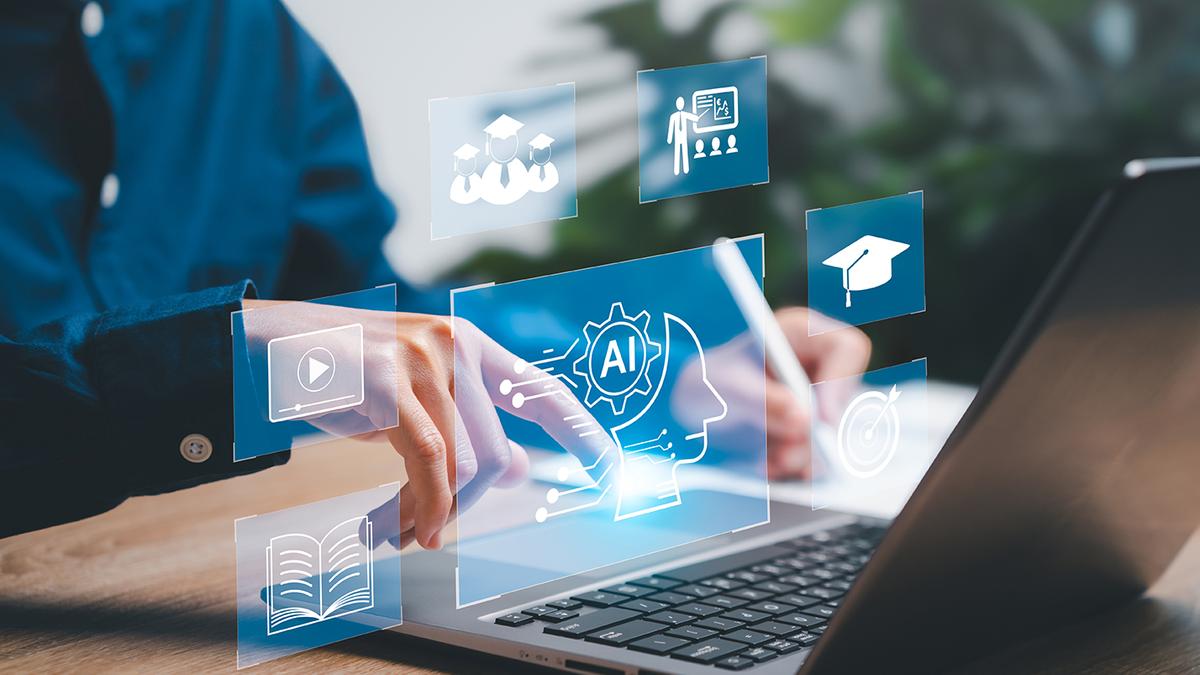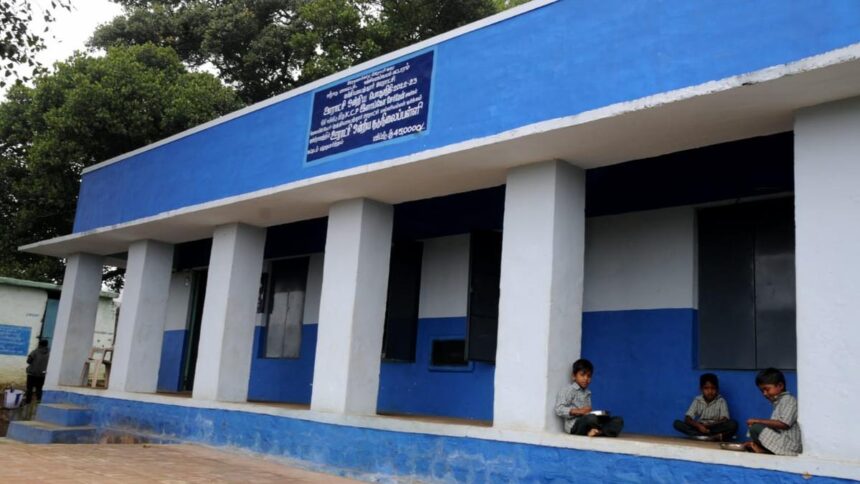You send a job application, never hear back, and wonder if anyone even saw your CV. You will often hear job seekers ranting about not hearing from the HR at all. But, these rants are likely to be a thing of the past, thanks to Artificial Intelligence (AI).
Not only that, job seekers will no longer have to apply to every job posting in a bid to land an interview. They can apply to fewer jobs, but with higher chances of their application being scrutinised by the HR.

In the last two decades, recruitment has moved online. Good jobs, or any job for that matter, are visible to almost everyone in India who has access to the internet.
Ajay Shah of upGrad Rekrut says, “Taking recruitment online enabled access to candidates in tier-2 and tier-3 centres who earlier did not have this kind of access to jobs.”
But, while companies got access to a bigger pool of candidates, the increase in applications increased the time taken to screen profiles and identify the most suitable candidate for a role.
Often, the number of applicants is just too much for a recruiter to examine each CV, and then give their feedback to each candidate.
Which is why you will hear job seekers complaining about their applications ending up in a black hole.
At the same time, due to the overwhelming number of applications and the lack of resources to examine each one of them, there is a possibility that a company might miss out on good candidates.
Both these problems – lack of HR resources to screen all applications and not hearing from HR – are likely to be solved by using AI.
Husain Tinwala of upGrad Rekrut says, “Earlier, we used to spend a lot of time opening each resume, screening them, shortlisting the relevant ones….all of this was time-consuming. To process 1,000 applications would easily take about a week. Now, AI can perform this task in about 15 minutes based on the job description.”
But, that is not all. Recruiters are using AI even further up the hiring funnel.
Husain Tinwala says, “I can send an assessment link to the shortlisted candidates for further filtering. The initial tasks of filtering the candidates, first level of assessment followed by the logistics of scheduling interviews can be taken care by AI.”
This is especially useful in bulk recruitment.
AI can handle any number of job applications
For example, if a company is recruiting 100 persons for which they have shortlisted 400 candidates out of 1,000 applications, they would call all the shortlisted candidates for an interview on a certain day. You might be given a token and told to await your turn to be interviewed. Some people might remember attending such interviews in the early part of their career, spending an entire day at such interviews.
Companies deploy huge teams of HR personnel and support staff to conduct such interviews.
But using AI, companies can save the time of candidates, and also the amount of resources employed by them during such interviews.
Ganesh S. Padmanabhan, VP at CIEL HR, says, “AI can rapidly scan and shortlist multiple candidates based on keywords in resumes and job descriptions, drive early-stage communication, predict candidate fit based on data patterns, and conduct first-level candidate evaluation. This allows recruiters to focus on engaging with shortlisted candidates.”
Companies use AI to schedule interviews with candidates in time slots spread throughout the day. This saves time for the candidates, and managing the candidates becomes easier for the company. The feedback on each candidate is fed into the Application Tracking System (ATS) and can be shared with the candidates, informing whether they have been selected, or not.
Anand Kabra, Chief People Officer at Apexon, says, “An AI-powered recruitment assistant is embedded within our ATS. This AI-assistant transforms candidate engagement by sending personalized communications, proactively recommending tailored job opportunities, and offering 24/7 real-time responses to candidate queries. She continuously monitors engagement signals and updates candidate status, escalating high-potential profiles to recruiters at the right time. Beyond assessments, AI supports sentiment analysis across Human Resources Information System (HRIS) and ATS platforms, helping us understand feedback from candidates, employees, and recruiters. This allows us to proactively identify engagement gaps and optimize experience journeys.”
Don’t have to treat applying to a job as a lottery
However, AI can be only as good as the quality of the instructions fed into the system. For example, if the job description is vague or does not mention all the requirements, the first level of screening will not deliver the desired outcome. The company might end up spending more time than anticipated in the recruitment process and not even get the right candidates, despite using AI.
On the other hand, if the job description and the requirements fed into the system are accurate, AI can help companies make better use of their database of applicants.
Take the case of a candidate who might have applied for a role but was rejected for not matching all the requirements. But, thanks to AI, this might not be the end of the road for that candidate. The person might be considered for some other role whose requirements match with their skillset.

Anand Kabra says, “Candidates benefit from more relevant matches, as AI systems analyze their skills and preferences to connect them with the right opportunities. They are no longer lost in the pipeline; instead, they are surfaced for roles where they are most likely to succeed.”
Companies invariably have a huge database of candidates who might have applied for various jobs. AI can mine the existing database for suitable candidates before the job is posted online.
The outcome is that, among other things, a job seeker’s application might not always end up in a black hole.
This perception (of getting lost in a black hole) is partly the reason for job seekers to apply to any and every position that might even remotely appeal to them, irrespective of their suitability for that role. This is akin to treating the recruitment process like a lottery, as opposed to a professional HR exercise of identifying a suitable candidate for a role in a company.
But that is changing.
Matching skills with jobs, overcoming language barrier
Nowadays, once you upload your resume on a job portal, you get a list of jobs that you might be suitable for. If you use the in-built AI, this list might be further refined to suggest the exact job roles where your skills are most in demand, and also the jobs where you are most likely to be shortlisted.
Ajay Shah says, “AI is being used by job portals to throw up the most relevant openings to job seekers. At the same time, AI is helping candidates optimise their resume, bringing them more in line with the job description.”
This is especially helpful for candidates who might not be good at presenting their skills in the best possible manner in their CV. In such cases, the candidate can use AI to enhance the quality of their CV.
But you still need skills in your CV to stand out in a crowd.
To this end, candidates might simply cite skills in their resume merely to match the requirements of a role. This might even get them past the ATS. You might hear HR personnel complaining about candidates who looked great on the CV and even aced interviews but turned out to be a disaster once they were hired.
Humans won’t be replaced, but all companies will need help of AI
As job seekers increasingly use AI tools to enhance their applications, recruiters face the challenge of filtering through highly polished submissions that may appear to align nicely with the requirements of a job. This makes it harder to distinguish truly qualified candidates from those using AI-optimized language without the underlying skills.
Husain Tinwala says, “Thanks to AI, candidates will be able to re-write their resume to match a job requirement, which will increase the number of applicants for companies. HR will realise that a candidate is not suitable only when they are being interviewed. Hence, companies are working on how to enhance the screening process to filter candidates who are trying to get past the ATS.”
Candidates might be tempted to use AI to saturate their CVs with relevant keywords and skills in a bid to impress the HR.
Which is why companies will have to start incorporating AI tools in their ATS, sooner than later.

Anand Kabra says, “Our AI systems are built to detect such patterns. We analyse behavioural signals, interview interactions, and sentiment trends to flag inconsistencies or indicators of over-optimization. These tools help us uphold the integrity of our pipeline while maintaining efficiency. That said, we believe human judgement remains essential. Final hiring decisions are made by experienced recruiters who use AI analytics to guide, not replace, their evaluations.”
Husain Tinwala says, “AI is not replacing the human touch. Except in very high-tech companies, recruiters meet the candidate before an offer is made. Especially in leadership roles, mid-level roles and critical functions. Being a hiring manager myself, I would like to meet a candidate before I reach a decision. That human touch cannot be replaced by AI. But what AI has done is streamline the initial steps in screening a candidate.”
Advantage is in upskilling
Far from replacing recruiters, AI is making their work more strategic. Instead of spending hours scanning resumes, HR teams now focus on deeper evaluation — culture fit, communication skills, and leadership potential.
In other words: AI is the filter; humans are the decision-makers.
During face-to-face interviews, recruiters will probe candidates on the relevant skills and gauge their potential for cultural fit. While personal characteristics are unique to each candidate, even average candidates can build on their foundation course to upskill as per market demand.
Ajay Shah says, “We have said that there are enough jobs, but not enough job seekers with the relevant skills. That is where upskilling courses come into play. You can do an engineering course, but it is up to candidates to pick up skills matching the job requirements before applying to become more relevant to that role.”
upGrad, which focuses on upskilling, was one of the first companies in India to foresee the synergy that AI would usher. The company acquired Rekrut India – a recruitment and staffing solutions company – in 2020.
Nowadays, most job portals recommend courses alongside job alerts — nudging candidates to close their skill gaps before applying.
Husain Tinwala says, “Another way to approach a job search is to put all your skills and experience in a resume and ask AI to suggest the most suitable jobs. Earlier, people used to see an opening in an online platform, and press the APPLY button. But now, AI searches on the basis of most relevance to a candidate’s skills and experience. The next step is how to create a resume that will enable a candidate to stand out while applying to the jobs suggested by the AI.”
Top performers will be template for predictive hiring
Companies are calibrating the AI to come up with job descriptions that align most closely with their requirements. Job seekers need to demonstrate not just skills, but also traits of top performers — adaptability, collaboration, and problem-solving — if they want to stand out.
Bijayinee Patnaik, Assistant Professor, School of Business Management, NMIMS University, says, “Companies will feed profiles of successful or ideal employees, or the high performers, to their AI tools. The AI will use these parameters to shortlist CVs. This is called predictive hiring. Jobs portals that have access to millions of CVs have reached a certain level of proficiency in predictive hiring, which is why you see a prompt saying: ‘Are you a match for that profile?’ The reliability of these prompts depends on the quality of the requirements fed by the recruiter into the AI.”
It is possible that AI will be used to sift through multiple job portals for suitable jobs or candidates.
If you do not have AI….
The buzz around AI is so strong that companies, job seekers, job portals, and educational institutions are all looking at how technology can help improve their HR-related work.
Bijayinee Patnaik says, “This year, NMIMS used AI-assisted personal interviews in its admission process for management courses.”
Most jobs portals have already incorporated AI in their recruitment process. Not doing so is likely to result in falling off the radar.

Ajay Shah of upGrad Rekrut says, “If I want to fine-tune my resume to a sales role, AI can do that. If I want to fine-tune my resume to a P&L role, AI can do that. So, AI can fine-tune a resume to match the requirements of a job. It can highlight the most relevant parts of a candidate’s skills with respect to a job.”
Going one step further, job portals are trying to leverage their data on roles and job functions for value addition to their users.
Bijayinee Patnaik says, “Jobs portals use AI to predict the questions candidates can expect if they are shortlisted for a particular role, which is very useful to job aspirants. They can also analyse speech patterns and body language while candidates undergo preparatory or mock interviews, which is the kind of feedback that job aspirants will appreciate.”
Is AI right every time?
AI is not infallible, but better understanding of its capabilities helps focus the technology on tasks whose outcomes are easy to measure and can be compared with the existing methods to check for accuracy and to gauge reliability of the tool. An increase in the factor of reliable outcomes will lead to more takers for that technology, which will trigger attempts to push the boundaries of where AI can be employed in the recruitment process.
Anand Kabra says, “Our AI-powered bot provides continuous post-offer engagement by sharing real-time company updates, answering candidate queries instantly, and monitoring sentiment to detect hesitation or uncertainty. Based on this insight, the system can proactively address concerns and, when necessary, escalate the situation by scheduling meetings with hiring managers or relevant stakeholders. This targeted intervention helps resolve doubts quickly, builds confidence in the decision-making process, and has led to a measurable increase in offer acceptance rates. Candidates feel supported, informed, and connected — long before their first official day at Apexon. Further, our onboarding process is enhanced by AI-matched buddy assignments, aligning new hires with mentors who fit their background and goals, which boosts early engagement and retention.”
Apna.co, a jobs and careers platform, has unveiled a job-posting-integrated, multilingual AI Calling Agent. This AI-powered solution conducts round-the-clock interviews in Hindi, English, and other regional languages, using advanced voice analytics to assess and shortlist talent instantly. The company claims that the AI Calling Agent is capable of running 10,000+ parallel interviews.
The AI Calling Agent customises each interview to match the employer’s job post and brand tone. It auto-generates role-specific questions, conducts live voice interviews, scores responses in real time, and follows up via calls, WhatsApp, and e-mail, ensuring no candidate slips through the cracks.
Recruiters can expect instant access to transcripts, audio highlights, and AI-driven shortlists via Apna’s employer dashboard.
The instant feedback is a difficult ask in bulk recruitment. Take for instance, campus recruitment. Which is where a reliable AI tool can help improve the process.
Fine-tuning campus recruitment
Bijayinee Patnaik says, “Campus recruitment represents volume. Hundreds will apply. If a company is looking at students in 15 campuses, they can expect close to 3,000 resumes. AI can shortlist suitable candidates based on knowledge and skills. Most of the AI tools are trained to identify keywords. By picking up relevant keywords in the 3,000 resumes, AI will bring down the potential candidates to interview to a more manageable number.
“At present, HR personnel go through each of the 3,000 resumes, which is time-consuming. Also, humans are prone to bias. Plus, fatigue will kick in when humans go through 3,000 resumes.
“AI is not prone to either problem, and also shortlists the resumes in a relatively short period of time.”
As lesser-value-add aspects of recruitment are being automated using AI, the increase in speed and efficiency is likely to cut down the size of HR teams of companies.
“No doubt, thanks to AI, a company will require a smaller team to sift through CVs to shortlist, but they are telling their HR personnel to upskill with courses in Behavioural Event Interview (BEI) or Competency-Based Interview. Instead of spending time on sifting through 3,000 CVs, HR personnel are told to focus on better evaluation of candidates that are shortlisted for an interview.
“What progressive companies will aim for is value in recruitment. They will expect their HR teams to look for culture fit, strengths & weaknesses, and better assess the personality characteristics of each candidate.”
For job seekers, this means
AI will find you: If your resume is well-structured and updated with the right skills, AI ensures it surfaces for the right roles
Quality over quantity: You don’t need to apply everywhere. Targeted, AI-matched applications have higher chances
Upskilling is mandatory: Without relevant skills, even the best AI-optimized CV won’t help
The human factor matters: AI gets you shortlisted. But interviews and culture fit still decide offers
Matching skills with jobs before you apply
For job seekers, AI can help candidates focus on roles that closely align with their skills.
Students often do not understand whether their skills match the requirements of certain jobs. Either they hesitate to apply, or apply for every job. Instead, they can use AI to either check their eligibility, or present their skills in a ATS-friendly format.
Ajay Shah says, “With respect to campus recruitment, companies will be able to shortlist colleges that show potential for a better outcome. Instead of going to 10 colleges, they will use AI to screen resumes and visit just 3 to interview the most-relevant candidates.”
Also, during campus recruitment, hundreds of candidates are interviewed. It was not possible to give feedback to each candidate on the same day. But, AI is making that possible. This enhances the candidate experience in talent acquisition.
Which is why rants about not hearing from HR about job applications are likely to become a thing of the past. As companies embrace AI to ensure that no candidate is left out of the screening process, the question is: are job seekers willing to go beyond their degrees to pick up the additional real-world skills required to land a job.





















